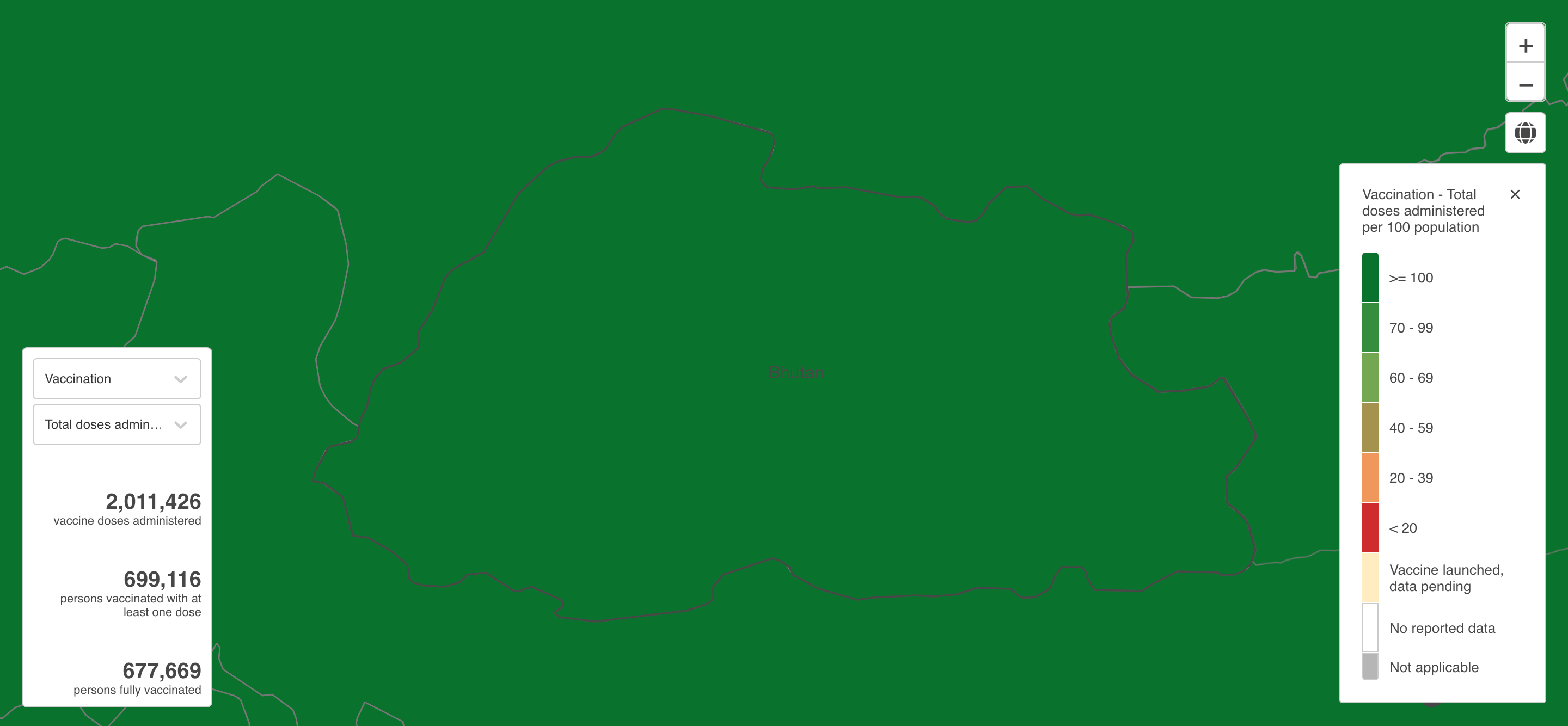From 23rd September 2022, there are no Covid-19 vaccination requirements for adults or children to enter Bhutan. However, it is recommended by all visitors to stay up to date with vaccinations against Covid-19 (Coronavirus) to help stop the spread of the disease.
All individuals (12 years and above) entering Bhutan may be subjected to random RT-PCR testing at the points of entry or at the worksite to maintain Covid-9 surveillance for new variants. No fee is charged for the RT-PCR testing for surveillance.
If a guest tests positive for Covid-19 during their stay in Bhutan, they will be required to quarantine in their hotel until they test negative. The cost for the additional quarantine nights and PCR tests will be borne by the guest. The Sustainable Development Fee is waived during the quarantine period.
There are no Covid-19 protocols to leave Bhutan unless the country the guest is travelling to requires them.
There are currently no community infections in the country. Country’s excellent health surveillance and detection services make Bhutan safe to visit.

Data of vaccine doses administered in Bhutan (Reference: World Health Organization)
Bhutan began its vaccination efforts on 27th March 2021 and inoculated its population within two weeks. Bhutanese citizens are currently being offered a fourth dose of the Covid-19 vaccine, and a vaccination programme for the country’s children is underway. The country has had a relatively low mortality rate from the disease.
Health Care Services
Bhutan places human capital at the core of its policymaking. As a result, it enjoys well-developed primary healthcare services. The Constitution of Bhutan guarantees free education and primary health care to all its people.
Visitors to the Kingdom have access to the same excellent medical provision. Primary healthcare services are available in all the country's 205 gewogs (sub-districts). Additionally, there are hospitals in all 20 dzongkhags (districts), including one national and two regional specialist hospitals.